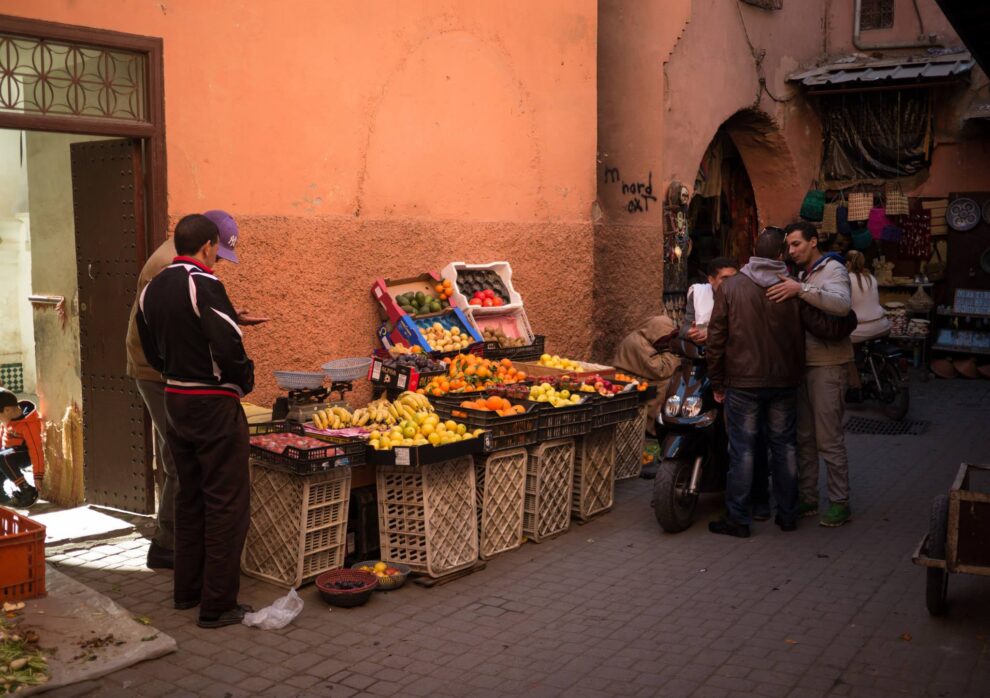Mohamed Salah Skhiri, a Tunisian entrepreneur, has channeled his enthusiasm for trading into a thriving international business, New Crop. This company exports processed and fresh food items from Tunisia and various African regions to countries including the US, Germany, Austria, the UK, and South Africa. In an interview with Jeanette Clark, Skhiri discussed the journey of building his enterprise. As a teenager, Mohamed Salah Skhiri would travel to the south of Tunisia to buy clothes from factories and sell them for a profit in the capital Tunis. “I’ve always been inspired by trading, by buying and selling,” he says.
After school, he earned a master’s degree in logistics and transport management from the University of Montpellier in France in 2006. He acquired experience at notable companies like DB Schenker and Bolloré Africa before becoming a key account manager at the freight forwarder GEFCO. In his position, Skhiri was dealing with various Tunisian manufacturers. One day, in 2013, he asked a counterpart at a partner company in California if they knew of anyone interested in importing Deglet Nour dates from Tunisia, a variety noted for its darker colour and caramel flavour.
“It was a query that would change the course of my life,” says Skhiri. The colleague responded positively, introducing him to an importer looking for date sugar, pitted dates, and date paste. Skhiri had an order for two 40-foot containers before he even had a registered company. He left his job at GEFCO, established his own freight forwarding company, and then founded his trading outfit New Crop. Shortly thereafter, in 2014, he procured the first shipment of dates from a reliable factory he had collaborated with in the past.
Over the subsequent three years, Skhiri nurtured his relationship with the single US client, steadily increasing shipments of Deglet Nour dates while actively seeking more customers. His strategy encompassed attending trade shows, using his freight forwarding contacts, cold calling, reaching out to potential clients via email, and connecting with them on LinkedIn. The process required patience and persistent follow-ups, and moments arose when success seemed elusive.
“We had a lot of ups and downs, we would meet a lot of scammers,” says Skhiri. “This job necessitates … a lot of patience and resilience.”
The olive oil mismatch, a lesson learned
In 2017, Skhiri decided to expand New Crop’s product line by adding Tunisian virgin olive oil. However, his initial attempt failed when he sent the product to the US without conducting proper market research. The olive oil, although highly rated globally, did not align with the preference of US consumers, who favoured more fruity olive oils. “It was a disaster,” he says.
Revisiting his strategy, Skhiri ventured to California to consult with an olive oil specialist at the University of California, Los Angeles (UCLA). Now better equipped with insights into the US palate and recognising California’s emphasis on health and longevity, Skhiri introduced another virgin variety, the Chemlali olive oil, still sourced from Tunisia. This led to the inception of his own brand, O’live Longer. The oil is packaged under contract at a facility owned by a family member. He then found a new American client via LinkedIn. The second time around, the product landed better.
This endeavour underscored two key insights for Skhiri: the imperative of understanding varied consumer preferences and the value of tailoring product branding to the target market. Following this philosophy, New Crop has since branded its Deglet Nour dates as Divine Dates and its canned sundried tomatoes and artichoke hearts as Galitchou.
Expansion to Europe and Africa
The tight-knit team at New Crop continued their pursuit of more clients across various destinations. Their perseverance bore fruit in 2019 when New Crop secured partnerships with two prominent fast-moving consumer goods distributors – one in Germany and the other in Austria – for its sundried tomatoes and artichoke hearts. These partnerships materialised after two years of consistent communication, visits, and negotiations, originating from connections forged at a trade fair.
To reliably source these products, New Crop fostered direct relationships with farmers in Tunisia. “This allowed us to reduce the number of intermediaries and potentially improve quality and pricing,” says Skhiri. In 2020, the company turned its sights to the rest of the African continent. It began exporting tomatoes and tomato paste to South Africa and, branching out from its usual food lineup, started shipping construction materials to Senegal and Côte d’Ivoire.
In cases when New Crop procures from manufacturers, for ad hoc trade requests or processed products, it makes sure to only partner with facilities that have all the required certifications for their factories – Fair Trade and FSSC 22000. This simplifies the process of getting approval for imports into regions such as the US and EU. By 2021, the company’s outreach had expanded further, bringing clients from both the UK and Spain into the fold.
Matching demand with supply
With ten permanent employees, New Crop is focused on expanding its customer base while maintaining a balance between promoting its own branded products (O’live Longer, Divine Dates and the Galitchou range) and providing a trading service for other inquiries. Whether it’s canned cheddar cheese sauce, tomato salsa, fresh seafood, or nuts like cashews and hazelnuts, New Crop sources the relevant supplier and aims to ensure prompt delivery. While most products are sourced locally in Tunisia, items like cashews come from Côte d’Ivoire and Tanzania, and hazelnuts from Turkey.
“We would like to expand our product range to include coffee and cocoa from Ethiopia, Kenya, and Côte d’Ivoire,” adds Skhiri. “The most important thing [in this business] is to have reliable and trustworthy partners.” In the face of stiff competition, New Crop grapples with challenges like import duties on Tunisian olive oil being exported to the EU, giving an edge to Italian producers. In an industry affected by global economic changes, geopolitical events, and shifting consumer preferences, Skhiri stresses the importance of managing costs, ensuring high product quality, and continual innovation as vital tactics to distinguish themselves. “Continuous competition requires continuous innovation,” he says.
Source: HOW WE MADE IT IN AFRICA















